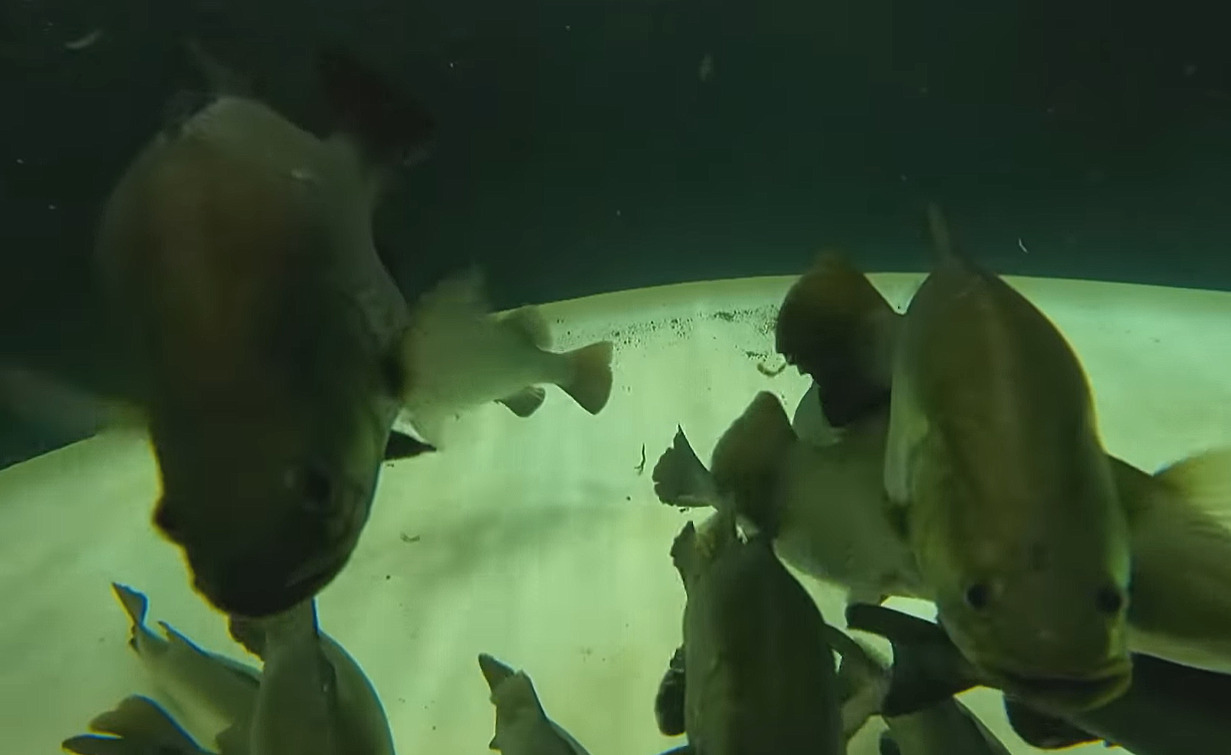SINGAPORE: A container fish farm was launched next to Tampines Round Market & Food Centre on Sunday, Nov 19, marking the first-of-its-kind venture in an HDB town, as reported by Channel News Asia. This initiative opens the door for Tampines residents to purchase locally farmed jade perch, thanks to the pioneering efforts of local start-up Aqualita Ecotechnology.
The 20-foot container employs a recirculating aquaculture system developed by Aqualita Ecotechnology, drawing on over 15 years of research by Temasek Life Sciences Laboratory. The system creates a controlled environment, utilizing fish waste upcycling, eliminating the need for antibiotics, and reducing pollution caused by uneaten feed.
Mr Goh Chin Heng, director of Aqualita Ecotechnology, explained the versatility of the system, stating, “We can easily farm fish anywhere within an urban city, and we can easily relocate when the site is up, to a new place and restart a new farm very quickly.” This flexibility positions the technology to cater not only to jade perch but also to other local fish varieties such as barramundi, red snapper, hybridized grouper, and tilapia.
The efficiency of the system is underscored by the impressive production capacity of one container, covering approximately 15 sqm, capable of yielding up to 1,200kg of jade perch annually. The initial investment for a container starts at S$30,000 (US$22,200), excluding land preparation costs. The contained environment allows for remote monitoring, reducing the need for on-site staff members.
The container in Tampines, dedicated to jade perch farming, is equipped with three tanks suitable for different fish varieties or different growth stages. Water filters are seamlessly integrated, maximizing the limited space inside. While closed to the public, glass windows provide curious residents with a glimpse into the innovative fish farming process.
Mr Goh highlighted the adaptability of the system to urban spaces, stating, “By using up spaces that are not utilized, we can actually grow fishes in an urban city – within grass plots, within empty warehouses.”
Unlike traditional floating sea cages, the patented system by Temasek Life Sciences Laboratory allows for controlled climate conditions. Exploring sustainability, the team is considering adding solar panels to offset approximately 50 per cent of the system’s energy consumption.
The strategic location of the container next to the market aligns with Aqualita’s goal of reducing delivery time and transport costs. The association representing the market and food centre is collaborating with local fishmongers to sell the jade perch.
Aqualita plans to have the first harvest ready in four to six months, offering the jade perch to fishmongers at cost. This development coincides with the revelation that Apollo Aquaculture Group has been under judicial management since May 2022, prompting a reevaluation of Singapore’s local food production goals.
Singapore currently imports over 90 per cent of its food, emphasizing the significance of local initiatives like Aqualita’s container fish farm. In pursuit of the “30 by 30” goal announced in 2019, local farms contributed around 29 per cent, 8 per cent, and 4 per cent of the total food consumption for hen shell eggs, seafood, and vegetables in 2022, as reported by the Singapore Food Agency. The government’s Lim Chu Kang Masterplan in 2020 aims to transform the area into a high-tech, highly productive, and resource-efficient agri-food cluster, furthering Singapore’s strides towards self-sufficiency in food production.

